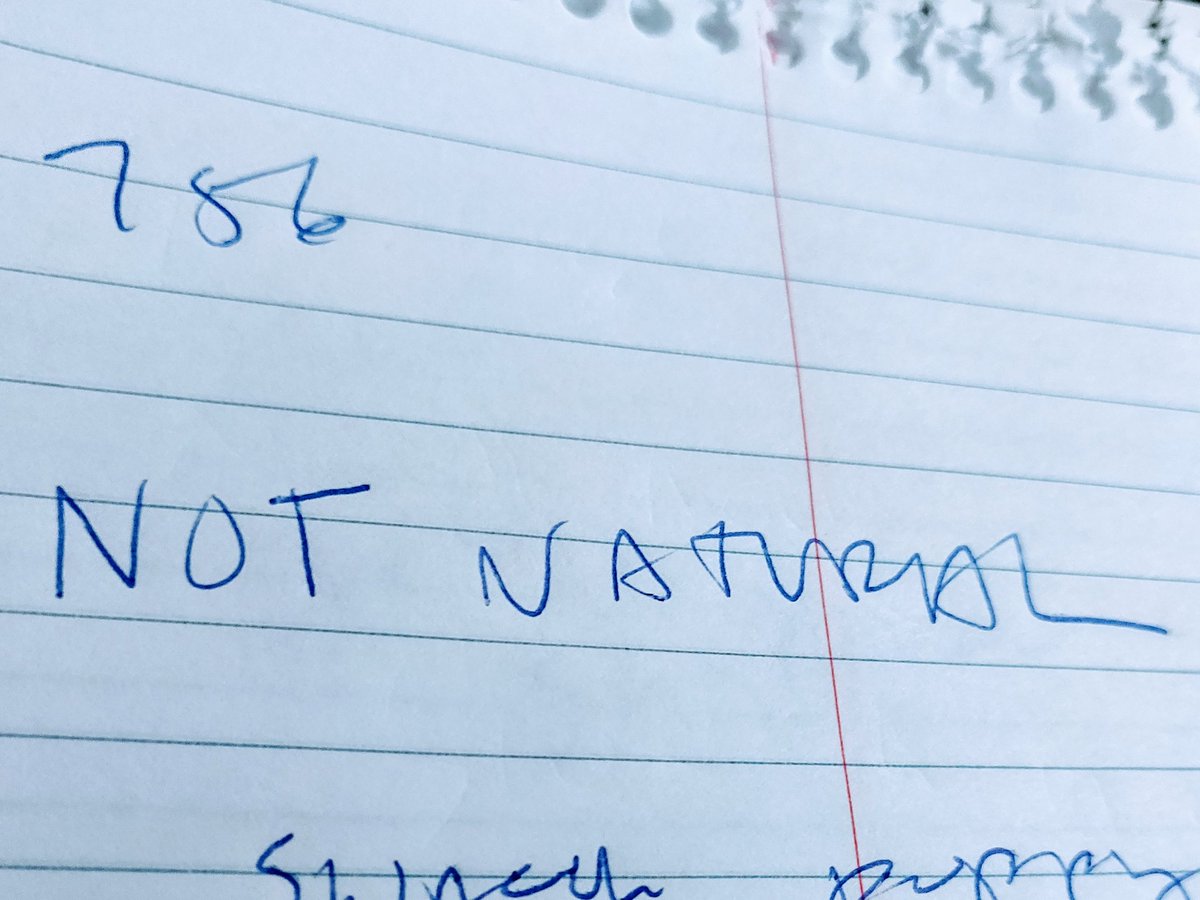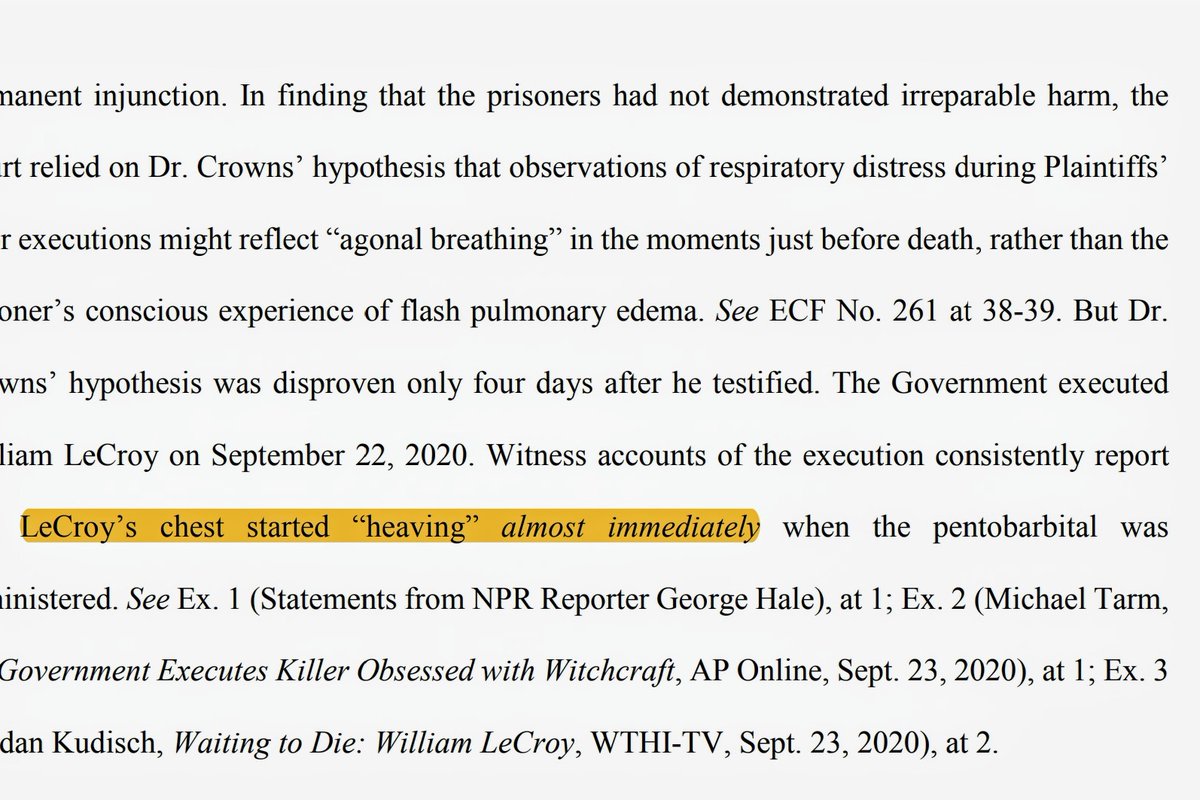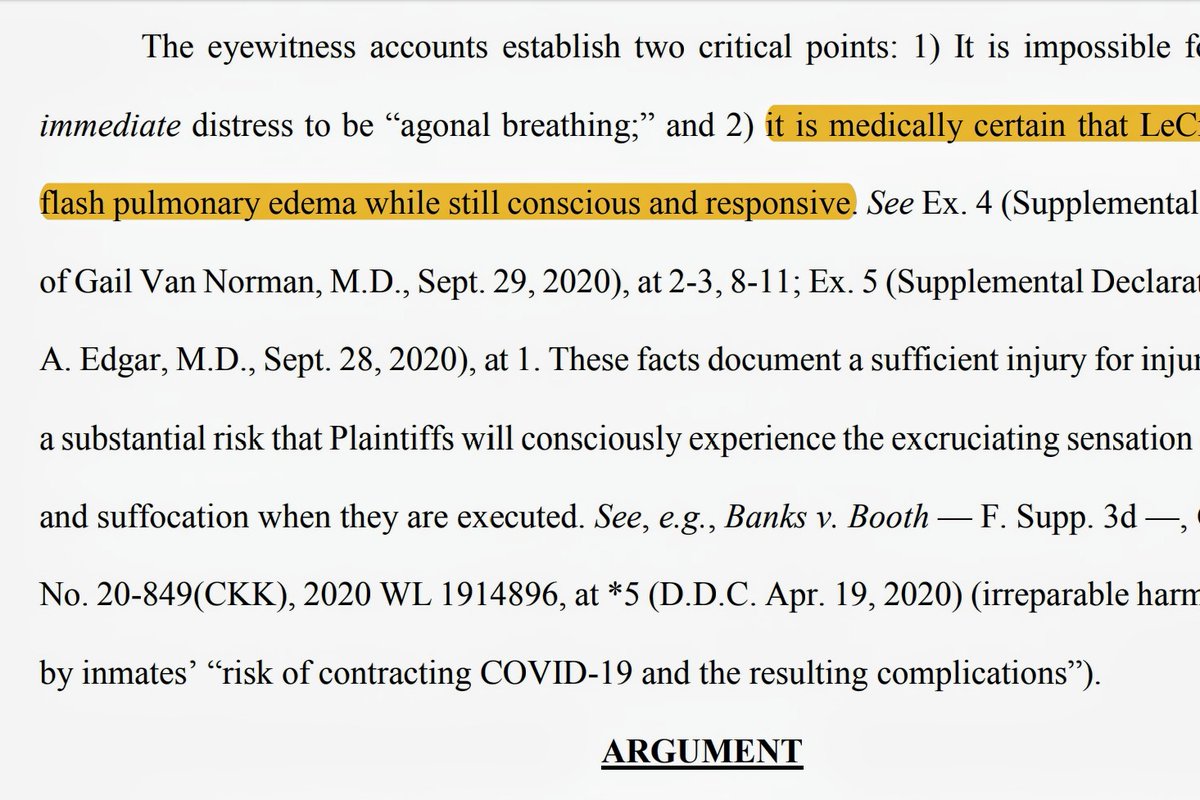Spent some time reviewing my notes and @NPR coverage from the five most recent federal executions in Terre Haute, Indiana. The execution of Alfred Bourgeois last Friday stands apart from the others in several important ways. It didn't go well.
No execution goes well from an inmate's perspective, obviously. But as in all deaths, natural or otherwise, some are objectively better than others. And Bourgeois' death was objectively worse than the others I've seen.
It took forever, for one thing: about 28 minutes. That's almost twice as long as it took to kill Brandon Bernard one day earlier using the same method, an overdose of pentobarbital. If Alfred Bourgeois was suffering that night, he suffered for a long time.
I'm a radio reporter and prefer to record. But the prison bureau doesn't allow microphones. They provide a pen and notepad. My handwriting isn't great, and it gets worse when I'm rushing. I usually capitalize important parts to avoid overlooking them later.
At 7:56 p.m., for example, I wrote, "NOT NATURAL MOVEMENT," referring to the way Alfred Bourgeois's torso appeared to be contracting uncontrollably not too long after the drugs began flowing. This went on for several minutes.
I made related notes each minute starting at 7:55 p.m. ("stomach rising," "stomach heaving"), at 7:56 p.m. ("stomach popping up," "heaving inside"), at 7:57 p.m. ("sucking inside middle," "still heaving") and ending at 7:58 p.m. All times are eastern U.S.
Does this matter? It depends. Defense attorneys in September cited media witness descriptions of a similar (less severe, in my view now) reaction during the execution of William LeCroy. They argued it was evidence that LeCroy was consciously attempting to breathe.
Any struggle to breathe might in itself suggest Bourgeois was consciously experiencing flash pulmonary edema, an excruciating condition caused by fluid pouring into the lungs. It's a sensation akin to drowning, if you're conscious and feeling it.
But I can't say what's happening. The media witnesses aren't doctors. And that's by design. The government could allow independent medical experts to observe each execution and report their observations afterwards. Instead, you're stuck with us.
All that's troubling enough. But one other event sort of took it to the next level, at least for me. Before the lethal injection drugs began flowing into his veins, Bourgeois forcefully denied each of the charges that ultimately brought us all together that night.
I spoke to one of Bourgeois's attorneys earlier in the week. Victor Abreu didn't claim his client was innocent of abusing and murdering his young daughter. But he insisted Bourgeois was intellectually disabled. He said Bourgeois deserved a fair evaluation, at least.
That Alfred Bourgeois spent his final moments alive trying to convince me of his innocence is not something I'll soon forget. I don't know what it means, and I don't know what answer might make any single part of this any less disturbing. But I'll leave it there.

 Read on Twitter
Read on Twitter




